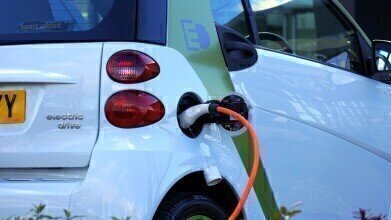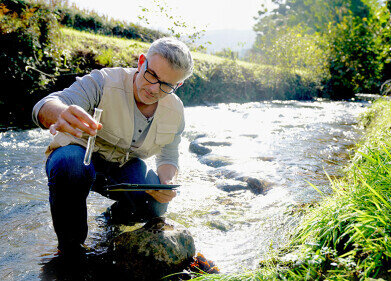Environmental Laboratory
How Will We Power Our Vehicles in the Future?
Feb 02 2016
With concerns about global warming and climate change reaching their zenith in recent years, world leaders came together in Paris late last year to pledge to bring about a real change in our carbon habits, reducing emissions and preventing a catastrophic global temperature hike. Diesel and petrol vehicles (both privately and state-owned) contribute a significant proportion of our overall emissions and a 2008 study by the International Energy Agency (IEA) projected that if we continue to use fossil fuels at the same rate as we currently do in 2050, our emissions will be more than double what they were in 2005.
This, coupled with the knowledge that fossil fuels are indeed a finite source, means that transitioning to another type of fuel for our vehicles is the logical course of action. Obviously, this will not happen overnight and will take significant investment and effort from governments, companies and consumers, but there are alternative fuel options out there. Here are some of the most plausible kinds of alternative fuels which could dominate our filling stations in the coming years.
Electric Vehicles (EVs)
Tesla Motors is at the forefront of developing EVs and already has a number of models available, which are slowly but surely gaining a foothold in the European and US automotive markets. Determined not to fall behind, many other companies have announced plans to rival Tesla, including Porsche, Google, Apple and Faraday Future.
Though EVs are carbon-free in terms of their emissions, the electricity used to power them needs to be generated somewhere. If this does not come about via renewable means (wind, wave or solar, most commonly), then they cannot claim to be 100% carbon-free – instead, they merely cut out the middle-man. Furthermore, a network of fast-functioning power stations across the UK is necessary to make the concept attractive to potential buyers.
Hybrid Models
One of the biggest worries about EVs is that they will run out of charge in the middle of nowhere, with not a power station in sight (see the above point about the current scarcity of such a charging network). In response to this problem, a popular compromise has been to manufacture hybrid models which combine an electric battery with a conventional fuel-burning engine.
The idea here is that the fossil fuels will only be used in case of emergency. Since most current EV batteries have a distance capacity of anywhere between 40 and 100 miles, and most commuters don’t come anywhere near that upper end in their daily journeys, in theory, fossil fuels should rarely be used. This offers a decent stopgap solution until we can develop EVs (or another alternative) more efficiently, but isn’t a panacea in itself.
Biofuel
In recent years, biofuels including biodiesel and biogas have emerged as potential replacement fuel sources for fossil fuels. These take unconventional feeds such as plants, oils, fats and even landfill waste and attempt to convert them into useful energy. Popular in Germany in its infancy, biogas has gained something of a foothold in Europe and in Asia too, which are two of the biggest fuel markets worldwide. Recent advances in biodiesel technology have also signalled a spurt in its popularity, too.
However, biofuels do not come without risks and provisos of their own. For example, the majority of biofuels are harvested from crops, meaning that land has to be set aside to farm it and a significant amount of time, effort and resources go into cultivating it. This threatens not only food supplies (by using land to create energy instead of food) but also the atmosphere, by using valuable water supplies and emitting harmful contaminants through the use of pesticides and the harvesting process.
As such, no single alternative fuel has emerged as the logical successor to fossil fuels. Perhaps a combination of the above techniques will provide the solution; perhaps they will be refined and improved to achieve better efficiency and environmental performance; perhaps an altogether new and undiscovered technology will surface in the coming years. Whatever happens, it’s clear we can’t rely on fossil fuels indefinitely.
Digital Edition
IET 34.2 March 2024
April 2024
Gas Detection - Biogas batch fermentation system for laboratory use with automatic gas analysis in real time Water/Wastewater - Upcycling sensors for sustainable nature management - Prist...
View all digital editions
Events
Apr 30 2024 Melbourne, Australia
Apr 30 2024 Birmingham, UK
May 03 2024 Seoul, South Korea
May 05 2024 Seville, Spain
May 06 2024 Minneapolis, MN, USA


















